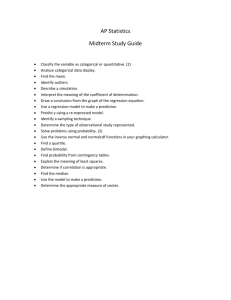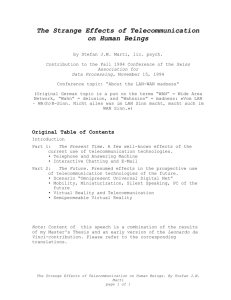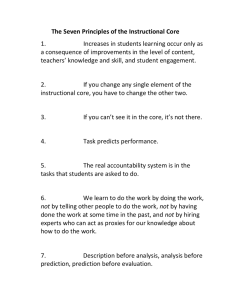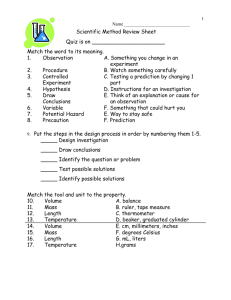E-Learning/An-Najah National University
advertisement
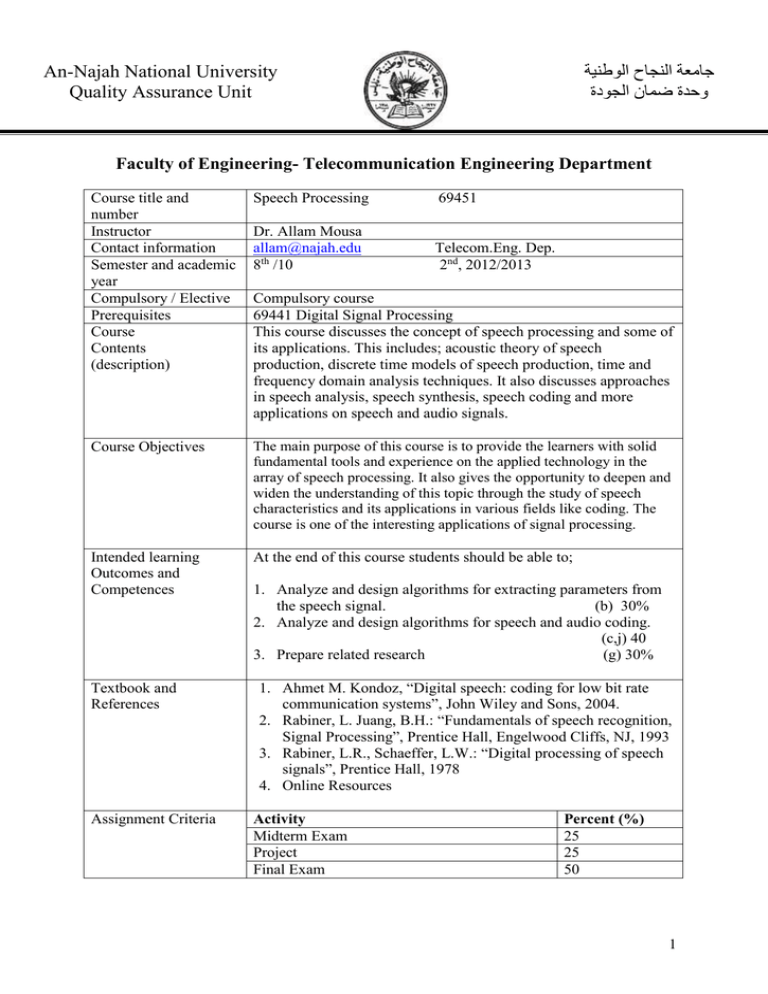
جامعة النجاح الوطنية وحدة ضمان الجودة An-Najah National University Quality Assurance Unit Faculty of Engineering- Telecommunication Engineering Department Course title and number Instructor Contact information Semester and academic year Compulsory / Elective Prerequisites Course Contents (description) Speech Processing 69451 Dr. Allam Mousa allam@najah.edu 8th /10 Telecom.Eng. Dep. 2nd, 2012/2013 Course Objectives The main purpose of this course is to provide the learners with solid fundamental tools and experience on the applied technology in the array of speech processing. It also gives the opportunity to deepen and widen the understanding of this topic through the study of speech characteristics and its applications in various fields like coding. The course is one of the interesting applications of signal processing. Intended learning Outcomes and Competences At the end of this course students should be able to; Textbook and References Assignment Criteria Compulsory course 69441 Digital Signal Processing This course discusses the concept of speech processing and some of its applications. This includes; acoustic theory of speech production, discrete time models of speech production, time and frequency domain analysis techniques. It also discusses approaches in speech analysis, speech synthesis, speech coding and more applications on speech and audio signals. 1. Analyze and design algorithms for extracting parameters from the speech signal. (b) 30% 2. Analyze and design algorithms for speech and audio coding. (c,j) 40 3. Prepare related research (g) 30% 1. Ahmet M. Kondoz, “Digital speech: coding for low bit rate communication systems”, John Wiley and Sons, 2004. 2. Rabiner, L. Juang, B.H.: “Fundamentals of speech recognition, Signal Processing”, Prentice Hall, Engelwood Cliffs, NJ, 1993 3. Rabiner, L.R., Schaeffer, L.W.: “Digital processing of speech signals”, Prentice Hall, 1978 4. Online Resources Activity Midterm Exam Project Final Exam Percent (%) 25 25 50 1 Week Subject 1 2 3 Introduction to Speech Processing and Related Technologies Introduction to Speech Processing and Related Technologies. Fundamentals of Speech Science: Speech Production Mechanism, Sound Units, Acoustic Theory, Digital Modeling Fundamentals of Speech Science: Speech Production Mechanism, Sound Units, Acoustic Theory, Digital Modeling Time domain analysis of speech signal: Short-time analysis, pitch detection, voice and unvoiced classification. Time domain analysis of speech signal: Short-time analysis, pitch detection, voice and unvoiced classification. Frequency domain analysis of speech signal: short Fourier transform, short-time Spectrum. Midterm exam Linear Prediction Analysis, Short-term prediction Linear Prediction Analysis, Long-term prediction Linear Prediction Analysis, Relationship among LPC parameters Coding: objective and subjective measurements of quality (SNR, MOS), Classification of coders Applications; speech recognition, speaker identification,… Midterm Applications; speech recognition, speaker identification,… Applications; speech recognition, speaker identification,… 4 5 6 7 8 9 10 11 12 13 14 15 16 a. An ability to apply knowledge of advanced mathematics, science and engineering to telecommunication engineering problems. b. An ability to design and conduct telecommunication engineering based experiments, as well as to analyze and interpret data. c. Ability to design a system, component, or process to meet desired needs, within realistic constraints such as economic, environmental, social, political, ethical, health and safety, manufacturability, and sustainability. d. Ability to function on multi-disciplinary teams. e. Ability to identify, formulate, and solve telecommunication engineering problems. f. Understanding of professional and ethical responsibility. g. Ability to communicate effectively. h. Broad education necessary to understand the impact of engineering solutions in a global, economic, environmental, and societal context. i. Recognition of the need for, and an ability to engage in life-long learning. j. Knowledge of contemporary issues. k. Ability to use the techniques, skills, and modern engineering tools necessary for telecommunication engineering practice. 2

